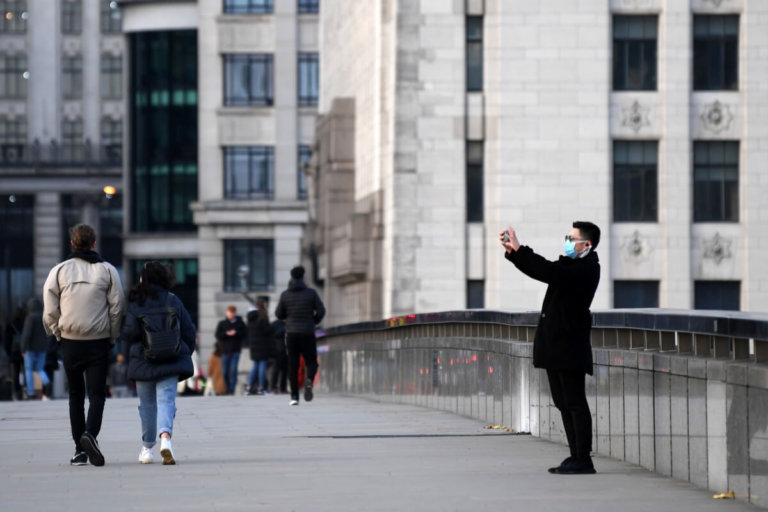
Prime Minister Boris Johnson has announced that the whole of UK will go into partial lockdown for three weeks to curb the spread of COVID-19.
This means those living in the UK can only leave their homes to exercise (once a day), buy essential items like food and medicine, help a vulnerable person or seek medical care.
Whether you’ve been asked to remain in your halls or to return home, it’s time to keep calm, stay safe and continue with our studies as much as possible.
Here’s what you should be mindful of if you’re one of the many international students currently studying in the UK.
International students in the UK will not have their student visas revoked
Many international students in the UK are worried that they will have their Tier-4 student visas revoked if they’re self-isolating or studying from home as the visa has strict regulations.
However, UK visas and Immigration at the Home Office has confirmed that they will not be revoking student visas. Check out the updated guidance on the official website for more details.
According to a statement on Gov.uk, “Decisions on whether to withdraw a student from their studies are for sponsors to make. The Home Office will not take any compliance action against students who are unable to attend their studies due to the coronavirus outbreak.”
Visa extensions will be granted
For students who are worried because they will be finishing their studies soon and their visas will be expiring or already have expired, they can breathe a sigh of relief as the UK Home Office has confirmed that all visas will be granted extensions until 31 May.
According to Gov.uk, “Individuals who are in the UK and whose visa expired after 24 January should email CIH@homeoffice.gov.uk, and they will be issued an extension until 31 May.”
“This timeline will be kept under review in case further extension is needed. The UK is also temporarily expanding the in-country switching provisions. This will mean people can apply to switch routes, such as from Tier 4 (student) to Tier 2 (General Worker), whilst remaining in the UK.”
Home Secretary Priti Patel said, “The UK continues to put the health and wellbeing of people first and nobody will be punished for circumstances outside of their control. By extending people’s visas, we are giving people peace of mind and also ensuring that those in vital services can continue their work.”
You will need to keep up with your studies online

International students in the UK must prepare to study online for the next three weeks or more. Source: Bay Ismoyo/AFP
Universities will be using platforms like Blackboard to keep students updated on assignments and exams, so be vigilant about e-mails and communication from your lecturers.
Be prepared to study and do your assignments online for the next three weeks, at least. If you’ve got any questions or concerns about your coursework, get in touch with your lecturers.
There is also a high chance you will have to take your exams online and that your graduation will be either postponed or cancelled.
Durham, Edinburgh, Oxford and Reading University are among some UK universities that have already informed students that graduation ceremonies will be cancelled.
You shouldn’t make any travel plans
There have been some reports by students in the UK who have been asked by their universities to leave campuses prior to the shutdown.
Me and my fellow students living @StudentRoostUK accommodation in Belfast are anxious, outraged and scared – we have been put in a position where we’re advised to go home, have been laid off or lost jobs yet still are being forced to pay rent – which we can no longer afford. 1/n pic.twitter.com/nahOQJEeZI
— Alexandra Rosbotham MYP (@EastAntrimMYP) March 23, 2020
However, the general advice is to stay put for now as the country has banned all non-essential travel. If you can’t stay in your housing for any reason, please contact your international student office for further advice on what you should do.
The UK government states that those in the UK should only travel for essential reasons.
Michelle Donelan, the universities minister, told Times Higher Education that students still living in student residence halls or renting private rooms “should remain there and stay indoors while current restrictions are in force”.
While it’s understandable that some international students in the UK are worried and want to head home to be with their families at this time, it’s better to stay in your residence hall or rented house to avoid spreading (or catching) the virus.
If you head back home, you’ll most likely need to be in quarantine for 14-21 days to avoid spreading the virus to your family if you are a carrier. Therefore, it’s best to stay in the UK for now and avoid travel.
Your social life will be affected

International students in the UK are allowed to exercise outdoors once a day, but must avoid social gatherings. Source: Ben Stansall/AFP
In order to slow the spread and flatten the curve, everyone is required to stay indoors and avoid gatherings.
You are advised to keep up with your personal hygiene such as washing your hands with soap and water for at least 20 seconds and taking daily showers – especially when you get home after buying groceries and exercising.
You won’t be able to physically meet your friends but that doesn’t mean you can’t still stay in touch.
We know it can get lonely, so stay in touch with your friends and family via video calls and text messages to keep your spirits up.
Feeling anxious or getting harrassed? Get in touch with your university for support as they are there to help you through these difficult times.
According to the higher education representative body Universities UK, universities are prioritising staff and student well-being by “providing students and staff with support regarding additional anxiety as consequence of the pandemic,” and “providing support for any students who may be experiencing harassment related to the pandemic.”.
What should you do if you have COVID-19 symptoms?
According to the UK government and the NHS, you should self-isolate for seven days if you have the following symptoms: A high temperature and a continuous dry cough.
If you feel you cannot cope with your symptoms at home, your condition gets worse or does not improve after seven days, then you should contact the NHS 111 online coronavirus service.
Liked this? Then you’ll love…
5 alternative housing options for UK students who are kicked out of halls or can’t go home
5 questions to ask your university about if your course is disrupted







